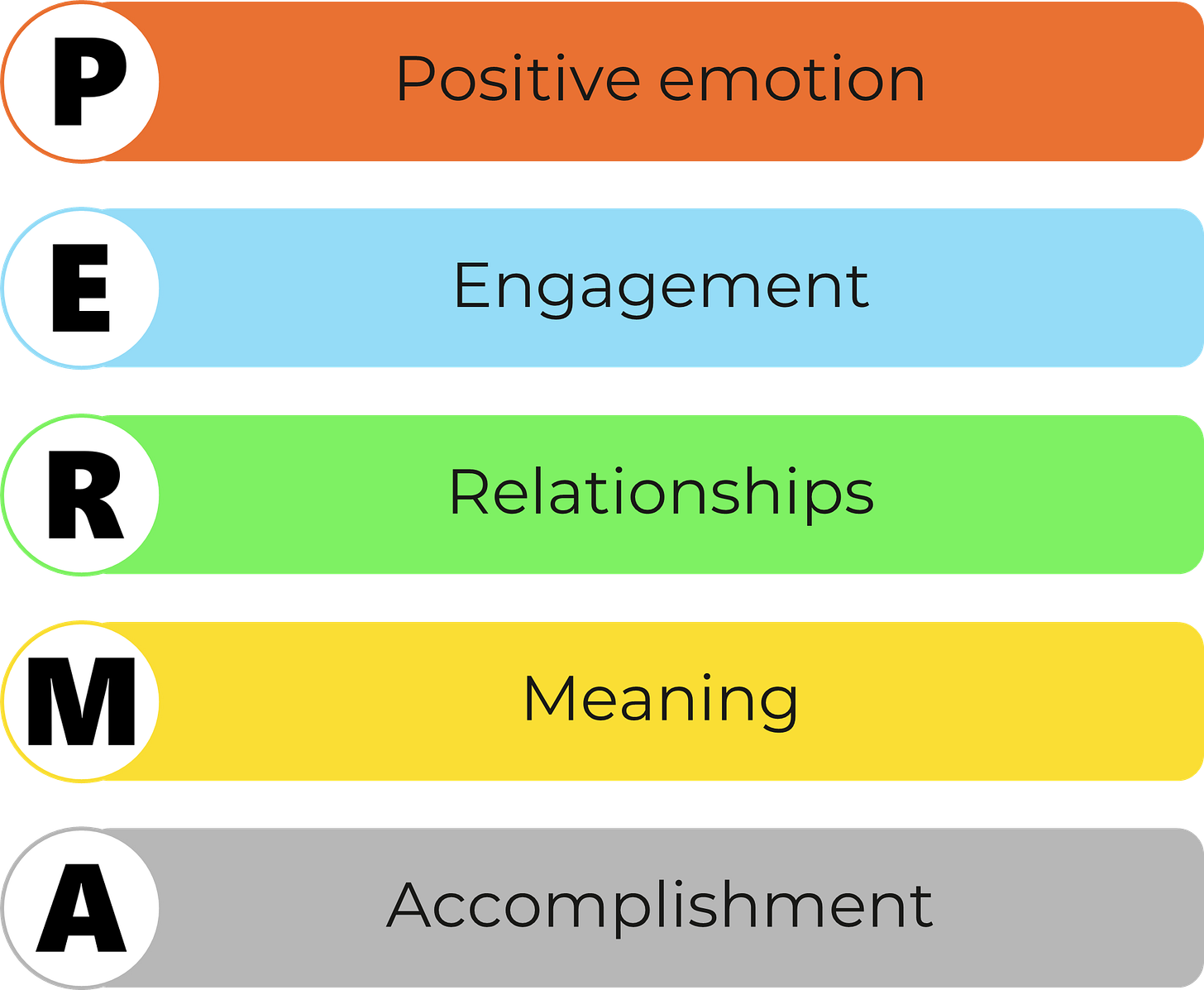What It Means to Be an Expat: The One Thing Nobody Tells You
Where's 'home' if you're an expat 🧩 Why relationships matter 🧩 The growing concern about loneliness and isolation, and how to address it
I was sitting at my desk at work, munching on hazelnuts, and writing a process document. I shared an office with a freelance consultant - a foreigner, much older than me, and very experienced. He had traveled the world due to his job. I, however, still lived in my home country and had no intention of relocating. He was trying to convince me otherwise.
“I see something in you”, he told me. “Something that you’ll need if you relocate out of Bulgaria.”
“I have no plans of relocating”, I said.
“You will”, he replied.
That was funny. “Why do you think so?” I asked him.
“This place is too small for you,” he answered, in all seriousness.
I wasn’t sure I understood where this was going, but I was curious.
“In any case”, he continued, “I don’t want to come back here five or ten years from now and see you still sitting at that same desk, eating those nuts.”
I laughed. “What’s wrong with that?”
“Oh, nothing! It’s just not meant for people like us.”
“‘People like us’?! What do you mean?”
“People who have a backbone. People who can achieve things. And people who know how to be alone.”
I ignored the first characteristics, but that last one struck a chord. “‘Know how to be alone’?! What exactly are you saying? Are you feeling lonely here?”
“Not necessarily lonely, but I am alone, yes.”
“But there are so many people around you”, I replied in the full naivety of my 20+ years.
“Like, who? These are all colleagues. There’s no one waiting for me at home.”
“But I live alone, too. By the same token, I’m alone too. These people here are all just colleagues…”
“Darling, you’re in your home country. You’re not alone.”
“Of course, I am!”
“No, you’re not. You don’t know what ‘alone’ means”, he smiled at me. “Not yet, at least.”
Fast forward 20 years, I’m sitting at my desk in my apartment in Berlin, Germany, as I’m writing this story. I’m munching on my late breakfast and looking at the grey clouds outside. Another day of rain - while down south, the Balkans are baking at 40+ degrees Celsius and fighting wildfires.
I didn’t relocate straight to Germany. One year after the above conversation, I was on my way to the Netherlands, with a car full of all my belongings, and a heart full of hopes and aspirations. This was a recipe for disaster - I know this now. You easily get disappointed if your expectations are high.
It only took 1,5 years for me to crash and burn in the Netherlands. I went back to Bulgaria, determined I wasn’t going to relocate ever again. Relocating is a huge step, and failing at it is too painful. But a friend of mine tried to convince me not to give up.
“You just haven’t found your place yet, that’s all. You should keep trying,” she said.
“Theoretically, I may never find my place,” I replied.
“Theoretically, that’s true. But, in practice, you will.”
“How do you know that?”
“I just do - trust me on this one!”
Half a year later, I moved to Germany - and, this time, with zero hopes and expectations. Only with my bags, and no excitement whatsoever. That must have been so apparent that even my Mum, when driving me to the airport, gave me the following parting advice:
“Try to keep an open heart and mind. You never know what might happen.”
This was strange coming from her, as she had never lived abroad. She didn’t even speak a foreign language. But the advice was solid, so I took it. No hopes and expectations, but an open heart and mind - got it!
15 years later, I am still in Germany. I haven’t changed the country; I haven’t even changed the city. I have friends here; I found my husband here; I run a business here. But would I call it ‘home’? What does ‘home’ even mean?
If we go by the dictionary definition, ‘home’ is “a place of residence”, “a familiar or usual setting”, or “a base of operations”. That means I have a lot of homes: Bulgaria, Germany, Poland (my husband is Polish and we travel to Poland just as often as we do to Bulgaria, if not more often, because it’s simply closer to Germany), and possibly others.
According to the same dictionary definition, ‘home’ can also be “a place of origin”. That narrows it down to Bulgaria only. So, is Bulgaria my home then?
No, it isn’t. As sad as it may be, I’m not very Bulgarian now. And neither am I German, or Polish, or any other. If I have to choose a place to call ‘home’, there is no such place. I don’t belong anywhere anymore.
Bulgaria shaped who I am - up until I left it. You can still see certain Bulgarian traits in me, but in general, I don’t think like a Bulgarian, I don’t act like a Bulgarian, and I don’t communicate like a Bulgarian. This is the most apparent when I talk with someone who has never left Bulgaria - their world view is different from mine. When I’m there, I speak Bulgarian, but I’m actually a foreigner.
And I’m a foreigner in Germany, too. Regardless of whether I speak the language or not, I’ll always be a foreigner, because I don’t fully think or act as a German either. And I’m a foreigner in Poland, too - for exactly the same reasons. And I’ll be a foreigner anywhere else I go.
Here’s what my well-traveled colleague didn’t tell me 20 years back, when we had that nice chat about relocating: Once you step out of your home country, you cut your ties to any place. Your home country will change, and you will change, irrespective of each other. After a few years, you two won’t be compatible anymore. And you’ll never be compatible with any other place either, because it didn’t single-handedly shape you. Eventually, you’ll never have a place where you truly belong.
However, is ‘belonging’ really that important? Turns out, it is. ‘Belonging’ is not about a place, but about the people. You do need your own tribe: a network of people to share your internal world with, to have fun with when times are good, and to support and guide you when times are tough.
In 2011, Dr. Martin Seligman listed relationships as a key component of well-being in his book Flourish*:
There are many examples that prove relationships are an essential part of well-being, such as:
There’s plenty of global research: World Health Organization (WHO), Swiss Re Institute, Statista.
Top athletes talk about it: Carlos Alcaraz, Conor Niland, Christopher McCandless.
Research on Japan’s longevity points to it:
“Without question, the international superstar of longevity is Japan, which has the highest life expectancy of any country in the world. In addition to a healthy diet […] and an integrated health care system […], longevity in Japan is closely tied to its culture […].
“The sense of community, and the fact that Japanese people make an effort to stay active until the very end, are key elements of their secret to long life.
“[…] Surround yourself with good friends. Friends are the best medicine there is for confiding worries over a good chat, sharing stories that brighten your day, getting advice, having fun, dreaming… in other words, living.”
Excerpt from Ikigai: The Japanese Secret to a Long and Happy Life* by Héctor García & Francesc Miralles
Loneliness and isolation are seen as a major public health issue in today’s world - a silently growing epidemic. They lead to serious physical and mental health problems, comparable to the ones of smoking or being obese. They’re also associated with a high risk of premature death.
* Amazon affiliate link
Living the life of an expat means we (can) relocate quite a lot. And the more we change locations, the harder it is to maintain relationships. Because relationships are like plants - they need constant care, sun, water, love. If you only provide that from time to time, at best, your plants won’t grow as strong as you want them to be, and at worst, they will die.
I must also mention how easy it is to form relationships when you’re younger, and how much more difficult it becomes the older you get. We tend to close ourselves into our own worlds, into our areas of comfort - and we don’t like getting out. While I don’t know for sure why that is, I think it’s because we have a certain level of fear - of life itself, based on how equipped we are to face it - that intensifies with age as our capabilities diminish. But this is a topic for another article.
For now, I’ll leave you with this question to ponder…
…and with a list of 15 things to do when you’re feeling lonely.
My Website | Freelance Revolution | LinkedIn | Instagram | Mastodon




